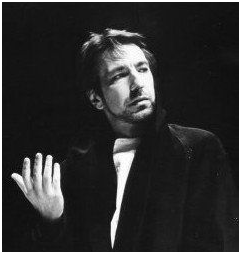 To recap. A weasel word is defined in the OED as “an equivocating or ambiguous word, which takes away the force or meaning of the concept being expressed”.
To recap. A weasel word is defined in the OED as “an equivocating or ambiguous word, which takes away the force or meaning of the concept being expressed”.

“I can suck melancholy out of a song,” says Shakespeare’s Jaques in As You Like It (picture), “as a weasel sucks eggs.” The phrase “weasel words” was coined in the US at the end of the 19th century, and used most famously by Theodore Roosevelt, criticising President Woodrow Wilson, to describe rhetoric that sounds as if it has substance but is actually empty of specific meaning, or is at best ambiguous and vague. Whatever positive action is implied can later be denied. A weasel word is a single word that transforms a statement into weasel words, weasel phrases, or weasel sentences, by which the resultant rhetoric can be recognised and characterised.
Weasels are often vague: “few people believe”, “many people doubt”, “experts say” (how few? how many? what experts with what expertise?). Or they may be ambiguous—for example, “values” (are they economic, political, or moral?) and “reform” (which may be destruction or transformation). They may be undefined—“work” and “change”—or involve shifts in meaning: “trust” (defined as “the recognition of a mutual purpose”) and “dialogue” (which means not discussion but diatribe). Other weasels need no gloss: “quality”, “excellence”, “governance”—we’ve all come to know what they mean, or think we have.
Some short words make superb weasels. Like “we”. Not much ambiguity there, you might think. But “we” can be completely exclusive (the royal we, the authorial or editorial we) or completely inclusive (everybody). And in between are all shades of grey—I, you and I, the cabinet, the government, Parliament, the country, the European Union, the United Nations, the world. The trick is to make the meaning slide ambiguously from sentence to sentence. Don’t specify who “we” is, and everyone feels included—until they secede.
Even “the” is not exempt—it is used to give verisimilitude to non-existent entities, such as “the international community”. To refer to “the junior doctors” implies that they are a homogeneous group with uniform views, which is not so, although on the matter of the contract with which they are being threatened they do seem to be exceptionally well united.
Now incorporate your weasel words into weasel structures:
• Use the passive voice instead of the active; this keeps the agent of the deed ambiguous. “Patients are being deprived of proper care”.
• Make the subject of your passive construct a poorly defined noun; this adds vagueness. “Some patients are being deprived of proper care”.
• Add vague adverbs: sometimes, often, perhaps, eventually.
• Don’t specify the timing: “We have no plans to privatise the NHS” (no plans today; tomorrow we shall start preparing them).
• Juxtapose incompatible ideas: “not only economic dynamism but also social justice”, “not only strengthening government but also devolving power”.
• Juxtapose undesirable extremes without specifying the alternatives: “We need neither old style dirigisme nor rampant laissez-faire” (“we need new style dirigisme”).
• Use fallacious statements and non sequiturs: “The NHS is not working properly because doctors don’t work hard enough at the weekends”.
• Claim that something is what it is not or is not what it is: “It was never the intention to impose the contract, merely to introduce it”. “More people are dying in hospitals at weekends because of lack of staff.”
In the last case the weasel phrase, “I assert that . . . ” is omitted. From such vagueness, ambiguity, and juxtapositions comes a powerful rhetoric, of which the Sophists would have been proud. Adapting Paul Johnson’s observation in Enemies of Society (1977), in the sphere of politics the use of weasel words tends to be towards gross overstatement. Sometimes we have to remind ourselves that George Orwell’s real name was Blair.
Jeffrey Aronson is a clinical pharmacologist, working in the Centre for Evidence Based Medicine in Oxford’s Nuffield Department of Primary Care Health Sciences. He is also president emeritus of the British Pharmacological Society.
Competing interests: None declared.
